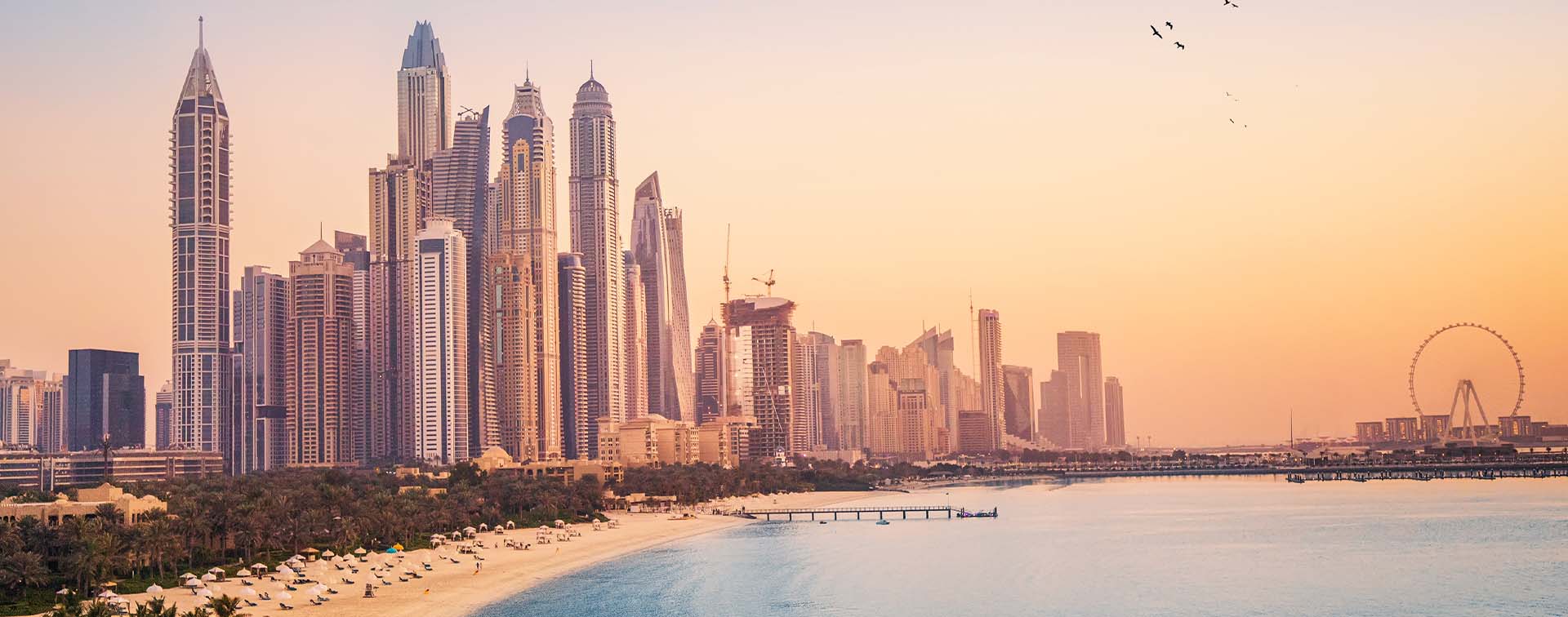
Sunita Singh-Dalal is Partner leading the Private Wealth & Family Offices at Hourani in the UAE. She advises on cross-border estate and succession planning, wealth management, formulating and implementing family codes of governance, family constitutions, and establishing family offices.
The Middle East, and particularly the Gulf Cooperation Council (GCC),[1] is undisputedly becoming a key global hub for investment migration. Strategically located as a gateway to many developing economies, the rapidly growing economies of the GCC, contemporary regulatory frameworks and financial investment incentives provided by GCC governments collectively make for compelling investment migration destinations. Attractive residence programs offered to foreign investors have positioned countries such as the United Arab Emirates (UAE) and the Kingdom of Saudi Arabia (KSA) as optimal global investment destinations for ultra-high-net-worth individuals, global fund managers, and single-family offices. These programs often include attractive benefits such as tax incentives and enhanced investment opportunities. The UAE’s unprecedented announcement of Emirati citizenship for select individuals in 2021 was met with much enthusiasm. Since then, the KSA and Oman have followed suit and made select grants of citizenship to key individuals.
Enhanced residence and investment opportunities have in turn had a directly positive impact on the number of family offices being established across the UAE and the KSA. Financial wealth in the UAE grew by 20% in 2021, which was double the global growth rate at the time. Such growth is predicted to continue at a steady trajectory as recent studies indicate that the assets managed by the UAE’s family office market alone are set to exceed USD 1 trillion by 2026! However, it is evident that this is contingent upon Middle Eastern family offices revising their investment strategies to include more sustainable goals and objectives.

Sustainability is clearly critical to younger investors, particularly those under the age of 40, as illustrated by a recent Lombard Odier report. The report, which surveyed 300 high-net-worth-individuals, 200 of whom were below 40, found that 81% of younger investors actively take sustainability factors into consideration when making investment decisions and 74% investors assume that new business opportunities will arise in sustainable sectors in the Middle East that embrace environmental, social, and governance (ESG) principles. It is therefore inevitable that the regulatory frameworks incentivizing sustainability will also become correspondingly sophisticated in order to accommodate such investment preferences.
This is clearly demonstrable by the governments of the UAE and the KSA, which have embraced and adopted several ESG initiatives. In 2021, the KSA launched its Saudi Green Initiative as part of the Saudi 2030 vision, which is aimed at ensuring the Kingdom reaches net zero emissions by 2060 — this is no mean feat! Fiscal incentives will be a necessary prerequisite if this is to be achieved and tax exemptions for renewable energy projects will be key to the success of this goal. Interestingly, Saudi’s Capital Market Authority introduced ESG disclosure guidelines as early as 2019, which require listed companies to disclose ESG-related information.
Furthermore, the Saudi Stock Exchange (Tadāwul) also launched an ESG index, encouraging Saudi listed companies to improve their ESG performance. KSA also endorses international frameworks offering guidelines for ESG reporting such as the Global Reporting Initiative and the Sustainability Accounting Standards Board. Tadāwul has similarly issued ESG guidelines aimed at raising awareness and promoting sustainable practices across the Kingdom.
The neighboring leadership of the UAE have followed suit and demonstrated their strong commitment to embracing ESG, evidenced by a series of regulatory initiatives introduced to foster ESG adherence throughout the Emirates. Notably, the UAE has taken a leading role in the region concerning the UN’s Agenda for Sustainable Development. The UAE is aiming to integrate ESG considerations into the core of its economic and social development policies, reinforcing its alignment with global sustainability objectives, and accordingly is hosting COP28. A key objective is to achieve net zero by 2050.
Having ratified the Paris Agreement, in 2021, the UAE launched its own visionary program, ‘We the UAE 2031’, seeking to position itself as a leading global sustainability hub. The UAE Green Agenda 2015–2030 was introduced in tandem, which lays out a comprehensive framework established to achieve five strategic objectives: Competitive Knowledge Economy, Social Development & Quality of life, Sustainable Environment & Valued Natural Resources, Clean Energy & Climate Action, and Green Life & Sustainable Use of Resources.
To achieve these five objectives, the UAE has introduced several incentive packages and schemes to support businesses and promote sustainability. One example is the Green Diversification Program, which provides financing options for green industries and incentive packages for green manufacturing. Collectively, this vision and such aims and objectives will result in the creation of a sustainable, stable business environment.
The UAE has established several regulatory frameworks aimed at promoting ESG; the Abu Dhabi Global Market financial center has implemented official regulatory provisions to position itself as a leading sustainable financial hub and a regional nexus for sustainable finance activities.
Similarly, the Securities and Commodities Authority, the UAE’s financial regulator, mandated ESG reporting for listed companies, requiring them to publish annual sustainability reports detailing their environmental and social contributions, as well as governance practices. Sustainability reporting is also mandatory for all companies listed on the Abu Dhabi Securities Exchange and the Dubai Financial Market (DFM). In alignment with the UAE’s vision, the DFM launched its Sustainability Strategic Plan 2025 in a bid to promote ESG and to position itself as the region’s leading sustainable financial market.
The ambitious visions and clear strategies that both the UAE and the KSA are pursuing create a very attractive environment for investment migration. The future for investment migration across the Middle East and in particular within the UAE and the KSA, is undisputedly buoyant as it continues to intertwine with the growing imperative for continual, sustainable investment. Given the vision of the UAE and KSA, the region is set upon an upward trajectory that shows no sign of abating.
Note
[1] The GCC is a regional, intergovernmental, political, and economic union comprising Bahrain, Kuwait, Oman, Qatar, Saudi Arabia, and the United Arab Emirates.